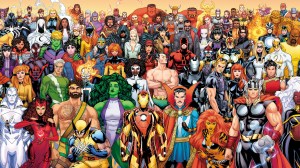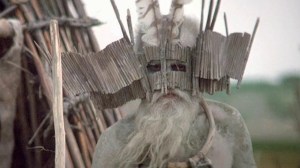If you can believe it, it’s been 13 years since Dishonored first introduced us to the haunting, rat-infested world of Dunwall, a steampunk-inspired city balancing between brilliance and decay. Developed by Arkane Studios and published by Bethesda, it pretty much set a standard for immersive, first-person gameplay combined with choice-driven missions and an eerie atmosphere. Its success solidified Arkane as a studio capable of crafting player-driven experiences that few other developers could match at the time.
Videos by ComicBook.com
And yet, for all its critical acclaim, Dishonored as a franchise came to a sudden, quiet stop, massively disappointing fans on a global scale. After the sequel’s release in 2016 and its standalone expansion, Death of the Outsider, in 2017, the story was seemingly tied off for good. Bethesda and Arkane both moved on to new projects, leaving us all to wonder how such a beloved and innovative series could fade away so quietly. With thirteen years gone by, it’s hard not to look back at Dishonored and feel that it deserved so much more for how unique it was. So why did such a brilliant franchise end in silence?
A Legacy Built on Choice

When Dishonored launched in 2012, it arrived during a time when linear action games dominated the landscape. Its structure broke away from the standard, offering open-ended missions where freedom of approach was king. While the concept wasn’t new, per se, the way Dishonored presented it felt fresh, and it captivated many for this reason. Every encounter was a puzzle, and every action shaped the world around you. It was interesting to see how your actions could dramatically change the trajectory of a mission, down its core objectives. The “chaos” system, which adjusted the tone and outcome of the story based on how violent or merciful players were, felt revolutionary. Whether you chose to slip through the streets unseen or leave a trail of bodies in your wake, the game responded to your choices in kind.
That sense of choice extended far beyond gameplay, too. It defined the series’ tone, in fact. Corvo’s silent stoicism and Emily Kaldwin’s later rise to power in Dishonored 2 showcased two distinct perspectives within the same universe. Arkane built layers upon layers of political intrigue and supernatural mystery in a way few games ever achieve. Dishonored went way beyond just another stealth game, although you could play it as such. It was a world that invited players to explore and experiment, and bear witness to resulting aftershocks.
Critics praised the series for its depth and artistry, while fans latched onto its unique blend of narrative and design. Yet, despite its loyal audience, Dishonored never reached the commercial heights of other Bethesda-published titles like Skyrim or Fallout 4. Part of the reason is likely because Dishonored, despite all its grandeur, never really felt like a full-fledged AAA game, so it never gathered the fame of one. Movement and combat, while silky smooth and praised as such, never quite gave that “this is a $60 or $70 video game” vibe. This was, of course, silently felt by many and rarely outright stated, because Dishonored and its sequels were actually AAA games. Saying this out in the open would just make you objectively incorrect. Dishonored was a critical darling more than a mass-market success story, a label that may have contributed to its untimely disappearance from Bethesda’s release slate.
The Quiet Death of a Masterpiece

After Dishonored 2 pushed the formula to its limit, Arkane took one final bow with Death of the Outsider, a standalone expansion that wrapped up the series’ central supernatural thread. In it, players controlled Billie Lurk, a former assassin confronting the mysterious deity who granted powers to Corvo and others before him. It was a fitting, bittersweet finale and quietly conclusive. It genuinely felt like the curtain call for a universe that still had a whole lot of stories left to tell.
Yet, nothing. Years passed, and Dishonored faded from the conversation. Arkane moved on to new ideas like Prey and later Deathloop, while Bethesda shifted focus to larger, more mainstream ventures. The lack of closure likely wasn’t due to failure, but perhaps to creative exhaustion and the desire to try something new. In any creative industry, no matter how successful or beloved a concept may be, those behind its creation desire to keep being creative rather than stewing in stagnation. Still, Dishonored could expand well beyond its initial scope, granting plenty of room for that stagnation to die. For fans, the silence hurt. The world of Dishonored, in all its supernatural, political, and mythological glory, felt too rich to be left behind.

In hindsight, its ending feels premature, almost rushed to a conclusion, so there existed an excuse to move on. The potential for a fresh cast of characters or new locations within the Empire of the Isles was limitless. A whole universe has been wasted in pretty much one city. It feels hard to believe that Arkane built such a framework for storytelling, only to leave it to die not long after. The series could easily sustain new tales of betrayal, power struggle, and redemption. Instead, though, the series became a revered memory, frozen in time. Bethesda continues to expand its portfolio with live-service ventures and massive open worlds, but Dishonored’s quiet artistry feels more distant than ever.
The Dishonored series remains a rare example of how creativity can thrive in the face of commercial uncertainty. Its focus on player agency and moral consequence carved out a niche that still inspires developers today. Thirteen years on, it’s hard not to think about what a third game could have been. Who the new protagonist would be. A spiritual successor that rekindles the spark the series is known for. But even without those dreams realized, Dishonored’s impact endures. It taught players that silence can speak volumes, and that sometimes the greatest tragedies aren’t found in the stories themselves, but in their untold sequels.
What do you think? Leave a comment below and join the conversation now in the ComicBook Forum!









